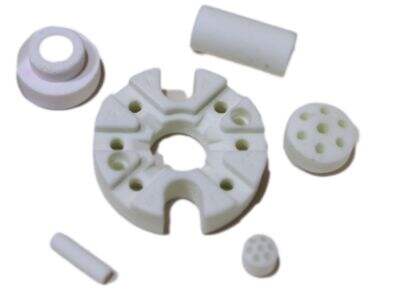Thermocouples are essential in many industries to gauge temperatures with precision. The type of materials used to construct these thermocouples is a pivotal factor affecting their life expectancy and performance. The duration and performance of thermocouples may depend on the specific material used. Such differences are critically important for the reliability and adequacy of Thermocouple materials in industrial practice.
Thermocouples: The Right Sensing Mix Can Extend Life
The construction of a thermocouple is the metal which provides the basis of both input leads to a circuit. Various metals have various properties that can influence how well a thermocouple works in the long run. For instance, some metals could be more resistant to corrosion or oxidization, or others could fare better in maintaining stable readings when temperatures get high. The appropriate thermocouple material composition selection makes it possible to extend its longevity and achieve an accurate measured temperature value in each run.
Effect of Different Material on the Thermocouples Life Span
The life of a Thermocouple is directly dependent on its Materials of construction. Some materials can degrade even more rapidly as they are subjected to elevated temperature, chemical reaction, or mechanical load. For instance, thermocouples formed out of particular alloys may oxidize or otherwise become contaminated and not provide accurate temperature measurement even for a limited period of time. Thermocouples made from more durable materials such as platinum or ceramic, however, may last longer and perform better under harsh conditions.
Besides being robust, the material selected could play a role on how much a thermocouple will cost. Some other metals, e. g. platinum, have high material costs and are relatively expensive to process making them cost-prohibitive for thermocouples made of such material. But this additional life and reliability of premium insulated thermocouple may outweight the added cost, particularly in situations where accuracy and uniformity are critical. Against the balance of performance versus cost for materials, the result is manufacturers being able to design and build thermocouples that provide their best value to consumers/integrated systems, while achieving their quality demands.
The Best Places For Thermocouple Material Options
The most important thing when manufacturing thermocouples of the quality is acquiring the highest quality materials. Kuaike Precision Alloy underscores the selection of high-end materials to guarantee stable performance and long-term accurate measuring thermocouples. We carefully choose providers of raw materials and who are known as reliable suppliers of wides range of best quality alloys. Constructing our thermocouple insulation types from the finest materials allows us to ensure that they will operate reliably and accurately under a wide range of temperature conditions.
What You Need to Know About the Composition Of Thermocouples For The Buyer?
Customers interested in purchasing thermocouples should not overlook the significance of material type. Thermocouple materials can significantly effect the performance and life of a thermocouple. We at Kuaike Precision Alloy pick and choose materials of the precise composition for all thermocouple needs. Our experts are well versed in the characteristics of individual alloys and their impact on thermocouple performance. With the proper combination of materials, buyers can select a thermocouple that will meet this goal for many years to come.
What Materials for Good Thermocouple Life?
When it comes to ensuring that thermocouples can be used for their maximum lifespan, some materials are simply the best choices. We place an emphasis on the use of platinum, rhodium, nickel and other materials in producing thermocouples that are resilient and have a long shelf life.
 EN
EN
 AR
AR
 DA
DA
 NL
NL
 FI
FI
 FR
FR
 DE
DE
 EL
EL
 HI
HI
 IT
IT
 JA
JA
 KO
KO
 NO
NO
 PL
PL
 PT
PT
 RO
RO
 RU
RU
 ES
ES
 SV
SV
 TL
TL
 IW
IW
 ID
ID
 SR
SR
 SL
SL
 UK
UK
 VI
VI
 HU
HU
 MT
MT
 TH
TH
 TR
TR
 AF
AF
 MS
MS
 GA
GA
 AZ
AZ
 MN
MN
 MY
MY
 KK
KK
 UZ
UZ
 KY
KY
 BN
BN

